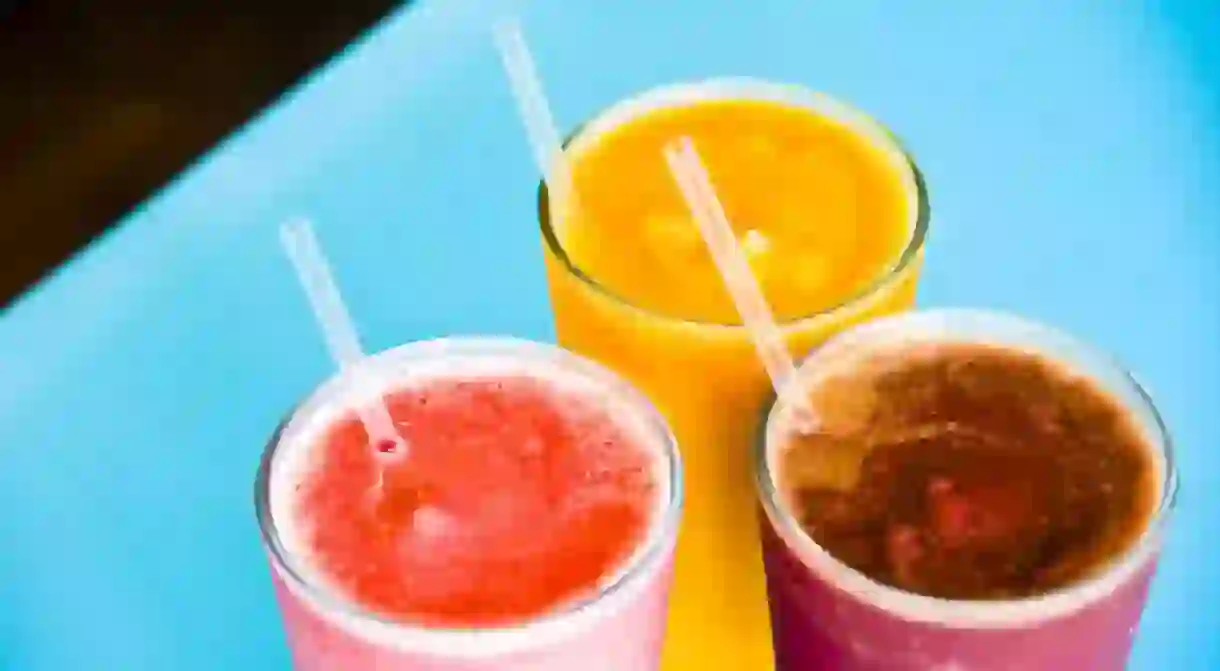Why Rio de Janeiro Is Making Plastic Straws Illegal

Rio de Janeiro’s famous coastline is known around the world for its incredible beauty, yet a growing problem is tarnishing its iconic image: plastic pollution. A lack of modern sanitation and loose waste disposal regulations means that Guanabara Bay, which feeds the surrounding sea, has become the city’s dumping ground for the last 20 years. However, small yet significant steps are being made to clean up Rio’s waters, starting with the ban on plastic straws and bags.
Guanabara Bay is one of Rio’s most stunning natural landscapes, framed by a mountainous skyline and dotted with islands on calm waters. Yet locally, it’s become synonymous with polluted waters and choked waterways as the city’s waste, from trash to sewage, has been pumped into the bay for the last two decades. Among the worst spots in the city are near to Rio’s international airport and the surrounding regions, where piles of plastic obscure the bay’s sandy shoreline and represent an alarming build-up of plastic pollution.

The condition of Guanabara Bay came under the international spotlight in 2016 when Rio de Janeiro hosted the 2016 Summer Olympics and Paralympics. Athletes used the bay for several water-based games, yet health inspectors found dangerous levels of viruses and antibiotic-resistant bacteria in the water, as well as large clusters of debris floating on the surface. In an attempt to clean up, the government provided quick fixes, such as eco-barriers, that kept the plastic away from the shoreline to give the appearance of clearer waters, but this didn’t deal with the root of the problem – the plastic was still there, just out of sight. Now, Rio’s authorities are looking for a long-term solution to reducing plastic contamination in the city’s ocean.
The first significant change is the ban on plastic straws across the city, which has been approved by the city council and is now waiting for the sanction of Rio’s mayor, Marcelo Crivella. Bars and restaurants will be required to use straws made from biodegradable or recyclable materials, otherwise they face a fine of R$3,000 (US$777).
The second significant change is the law banning all petroleum-based plastic bags from commercial establishments, recently approved and put into action in June 2018. Small business will have 18 months to implement the ban, while larger businesses will have 12 months. The plastic bags will be replaced by reusable bags that have to be made with at least 51% renewable materials, such as bioplastics made from sugarcane. As the world’s leading sugarcane producer, Brazil has the natural resources to supply such a change easily.

Politically, it’s a milestone moment for Rio de Janeiro in its approach to plastic reduction. With this act, Rio is joining a list of major cities implementing similar bans on plastic straws and other single-use plastics, such as New York City, Seattle, and Brussels.
However, the issue of plastic pollution in the city is hardly new to some organizations which have been trying to clean up Rio’s waters for years. Founded in 2016, AquaRio is South America’s largest aquarium with around 3,000 animals representing at least 350 marine species. But it’s more than just a marine zoo – it also focuses on environmental education and biodiversity conservation by highlighting the damaging effects pollution has on sea life and proposing possible solutions to the problem.
AquaRio has a partnership with the department of marine biology at the Federal University of Rio de Janeiro (UFRJ) which helps provide funds to support breeding programs of rare and endangered marine life. The aquarium also hosted the ceremony of the UN Environment’s Clean Seas Campaign, where they announced the ambitious goal of eliminating the primary source of marine debris by 2022.

There have also been several local projects working to clear up Rio’s beaches for the last few years. The World Wide Fund for Nature (WWF-Brasil) regularly organizes events in Rio that inspire hundreds of volunteers to pick up plastic from the city’s coastline. The most recent event was in March 2018, where volunteers collected a total of 135kg of rubbish. Other local projects include Recreio Limpo, a movement that promotes the protection of the environment in Recreio (a neighborhood in the west of Rio) and attempts to significantly reduce the rubbish there through voluntary clean-ups.
Latin America is responsible for just 5% of the world’s total plastic production, yet it imports billions of tons per year. Like other countries across the world, the effect of poor practices regarding plastic disposal is only properly being addressed now, meaning there are big challenges ahead to tackle the accumulation of plastic. However, the combination of government preventive measures and local initiatives that focus on cleaning up the current debris is a promising start for plastic reduction in Rio de Janeiro.













